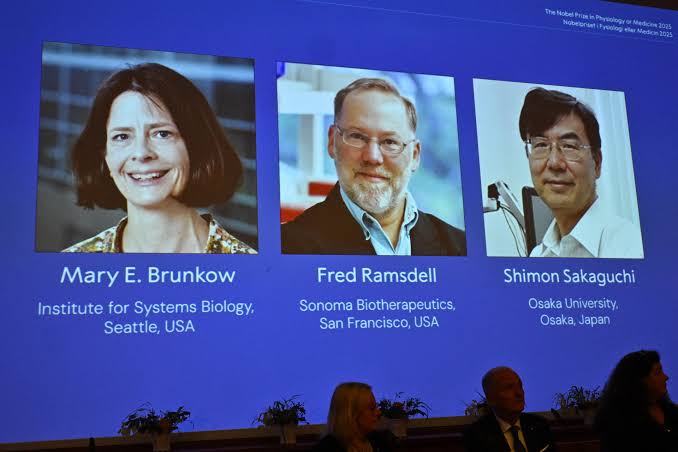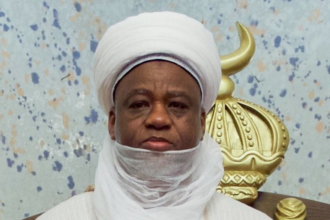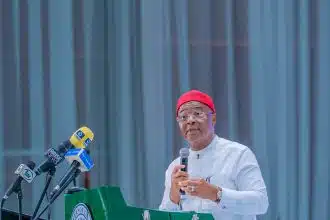Two American scientists, Mary E. Brunkow and Fred Ramsdell, alongside Japan’s Shimon Sakaguchi, have been awarded the 2025 Nobel Prize in Physiology or Medicine for their groundbreaking work on immune regulation, the Nobel Assembly at Karolinska Institutet announced on Monday in Stockholm.
The trio was honoured for their pioneering discoveries on “peripheral immune tolerance,” a biological mechanism that prevents the immune system from attacking the body’s own cells.
Their work has deepened scientific understanding of autoimmune diseases and paved the way for new immunological treatments.
Announcing the award, Nobel Committee Secretary General Thomas Perlmann hailed their research as a “milestone in modern medicine,” explaining that it sheds light on how the immune system distinguishes between foreign pathogens and the body’s own tissues.
Brunkow and Ramsdell, both based in the United States, collaborated extensively to identify key genetic regulators of immune tolerance, while Sakaguchi, a renowned Japanese immunologist, discovered regulatory T cells a breakthrough that revolutionised modern immunology.
Over the past decade, the Nobel Prize in Medicine has continued to spotlight transformative scientific achievements across diverse fields.
In 2024, American scientists Victor Ambros and Gary Ruvkun were honoured for discovering microRNA and its role in gene regulation.
The 2023 award went to Hungarian biochemist Katalin Karikó and American immunologist Drew Weissman for developing mRNA technology, a cornerstone of modern vaccines during the COVID-19 pandemic.
The 2022 laureate, Swedish geneticist Svante Pääbo, was recognised for decoding ancient human genomes, while the 2021 prize honoured American researchers David Julius and Ardem Patapoutian for uncovering how humans sense temperature and touch.
In prior years, Harvey Alter, Charles Rice and Michael Houghton (2020) were recognised for discovering the Hepatitis C virus; William Kaelin, Gregg Semenza and Peter Ratcliffe (2019) for work on how cells adapt to oxygen; and James Allison and Tasuku Honjo (2018) for pioneering cancer immunotherapy.
Established under the 1895 will of Swedish inventor Alfred Nobel, the Nobel Prizes remain the world’s most prestigious honours for scientific and humanitarian excellence. First awarded in 1901, they celebrate exceptional contributions in physics, chemistry, medicine, literature and peace.
In 1968, Sweden’s central bank, Sveriges Riksbank, introduced the Nobel Prize in Economic Sciences, awarded in memory of Alfred Nobel.








